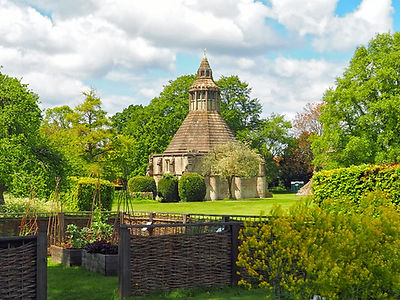


THE ECO THERAPY WALKING GROUP
Archaeological finds and written accounts confirm the Celtic ancestors had a deep connection with the natural world, which they expressed through ritual, art and story telling. Natural sites like rivers, forests, and hilltops were key locations for sacred ceremonies. The Druids (their priestly class) revered trees and plants, while their seasonal festivals like Samhain and Beltane marked nature’s cycles. Animals also held symbolic power in their art and stories, reflecting their belief in nature’s significance and it's meaningful connection in Celtic tribes.


Echoing the ancient wisdom of the Celts, we invite you to join our Eco-Therapy support group to reconnect with nature and cultivate a deeper awareness and appreciation for the natural world. Through guided outdoor walks, we will be engaging mindfully with the senses, experiencing the sights, sounds, and smells of the local landscape while exploring the interconnectedness of all living things. Our sessions will begin with a focused intention or question, followed by a 30 minute silent walk through the beautiful surroundings of Glastonbury Abbey as we practice mindfulness in nature. Along the way, we will observe the symbolism present in the landscape, in nature and the behaviour of animals and birds, seeking answers to our intentions which fall as metaphorical interpretations from our own subconscious minds. We will wind the session down beside the lake with a mindfulness meditation, immersing ourselves in the sensory sounds of leaves beneath a canopy of trees and share our insights and nature inspired realisations with one another over a warm cup of tea.


HEALTH BENEFITS
ECO THERAPY
WALKING IN NATURE
MINDFULNESS MEDITATION
Ecotherapy, or time spent in nature, is increasingly being recognised for its positive impact on wellbeing and can even improve symptoms of PTSD (Berger, R., & McLeod, J, 2018). A report by the university of Essex found that 95% of participants experienced improved moods after outdoor activities, and 71% reported a decrease in depressive symptoms. According to the journal of Scietific reports (2019), participants who spent at least two hours per week in green spaces were significantly more likely to report better mental health as well as improving physical stress symptoms, such as lowering cortisol levels. (Li, Q., et al. 2009).
A study conducted by Stanford University found that walking for just 90 minutes in a natural environment led to reduced brain activity in areas associated with rumination, a key factor in depression. This suggests that time spent in nature can lower the risk of mental health disorders like depression and anxiety. Additionally, research from Harvard notes that individuals who spend at least 120 minutes a week in green spaces report improved health and well-being, including lower blood pressure and reduced risk of chronic diseases (Harvard School of Public Health.)
According to a meta-analysis, mindfulness-based therapies have led to a 43% reduction in symptoms of depression and a 42% reduction in anxiety (Hofmann et al., 2010). Additionally, research published by the NIH highlights that mindfulness can enhance mood and promote healthier habits by increasing self-awareness and emotional regulation(NIH News in Health).

HOW DO I SIGN UP ?
When & Where:
This group meets every Tuesday at 11am outside the main entrance of Glastonbury Abbey.
(Look for Kubi and her two chihuahuas).
Cost:
This support group is free if you live in Glastonbury and earn under £25k or £10 per workshop, for those who earn over £25k a year, as part of an honesty scheme, which helps us to keep affording the free spaces for those on a low income. Please note that access to the Abbey isn't included and costs £3.80 (through their monthly membership). This will need to be purchased online before the start date of this walking group by following this link here.
Join now:
Please fill out our referral form to sign up below: